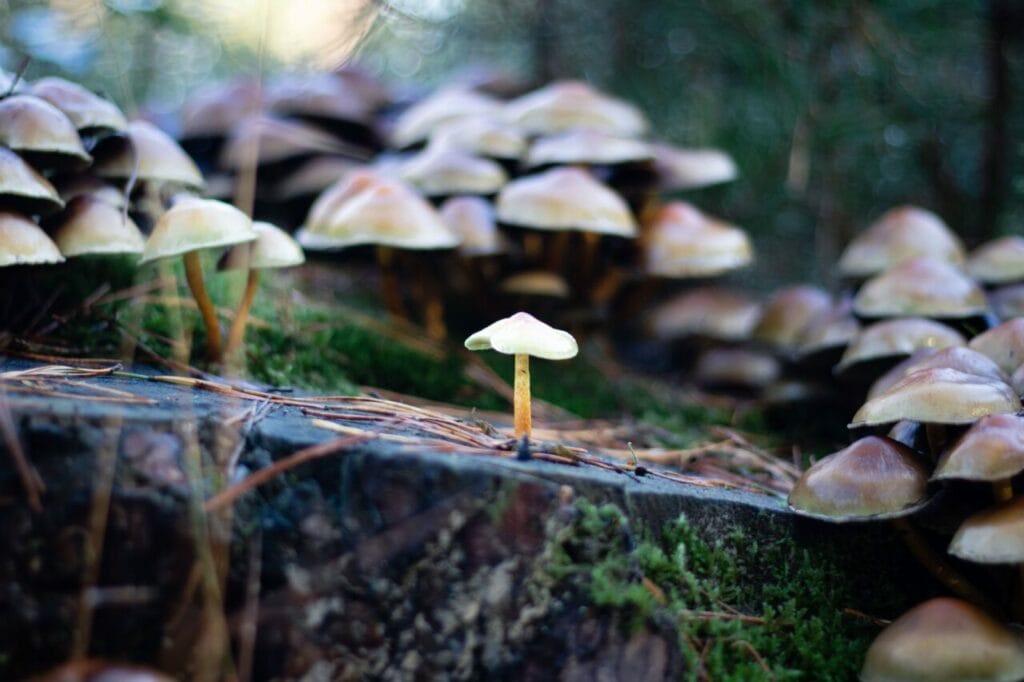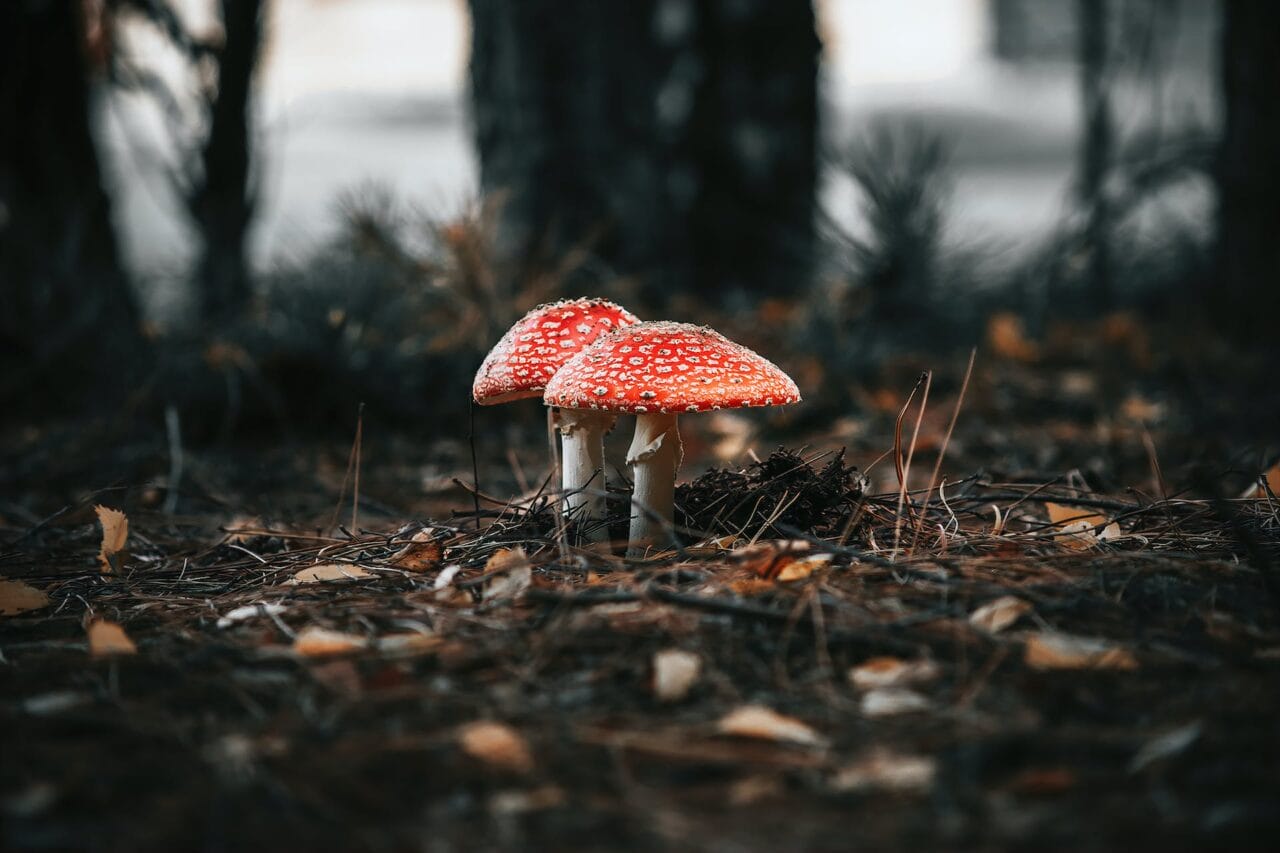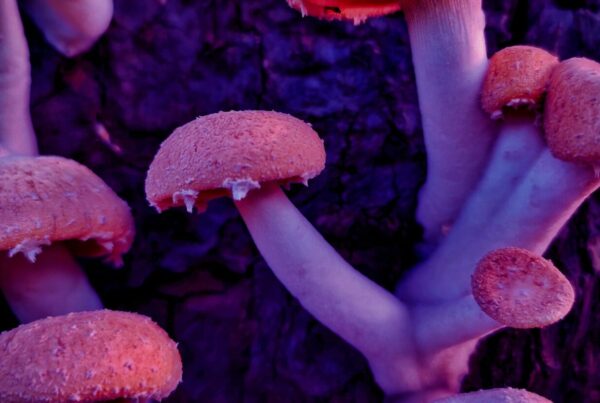There is an increasing fascination with psilocybin, driven by studies highlighting its potential benefits for mental health conditions such as anxiety and addiction. However, despite this surge in interest, obtaining psilocybin remains challenging. The number of labs and shroom delivery services that supply magic mushrooms is limited, and the prices can be quite high.
In this article, we will delve into the evolution of psilocybin, its current status, and the potential advantages it could provide to those seeking solace.
[toc]Key Points:
- Mushroom cultivation requires considerable effort and careful monitoring to avert contamination during the inoculation phase.
- Psilocybin creates a psychedelic experience by interacting with different brain areas, most notably the serotonin receptors.
- Psilocybin only marginally increases the heart rate, which returns to normal shortly after ingestion, and generally does not result in any other negative effects.

Providing Only Premium Quality Magic Mushrooms
Magic mushrooms naturally thrive in various environments such as manure-rich pastures, leafy temperate forests, grasslands, and woodlands. Over time, people have ventured into these areas to collect these fungi for medicinal purposes or to use them in spiritual and religious rites.
Traditional Method
Nowadays, the time-honored tradition of mushroom foraging in these natural habitats is less common. This shift could be attributed to the rise of alternative methods like cultivation or the availability of magic mushrooms for purchase online.
Wild mushrooms are usually less potent than lab-grown ones, which are carefully nurtured under controlled conditions. Moreover, foraging in the wild carries the risk of accidentally picking a poisonous species.
Modern Method
The cultivation of shrooms starts with the cultivation of spores to maturity, a sophisticated process that requires careful attention and meticulous procedures.
The meticulous care and attention to detail required in the cultivation process of mushrooms is essential to prevent any contamination during the inoculation phase. Once the mushrooms are ready for harvesting, they are typically dried by laboratories or cultivators to extend their shelf life. While fresh mushrooms have a lifespan of only a few days, dried ones can be preserved for several months, and in some cases, up to a year.
Manufacturers transform dried mushrooms into various forms, including microdose capsules, edibles, tinctures, and beverages, which are then distributed across Canada through magic mushroom delivery services.
Harnessing the Advantages of Psilocybe Cubensis or Magic Mushrooms
Researchers conduct clinical trials on mushrooms mainly to explore their potential benefits for mental health and mood disorders, as suggested by anecdotal evidence. There are numerous studies examining these effects, with methods ranging from microdosing using capsules to having a full-blown mushroom trip with dried mushrooms or chocolate edibles.
Psilocybin, once consumed, is converted into psilocin. This compound mimics the function of serotonin, a neurotransmitter crucial for mood regulation. It interacts with the serotonin receptors in various areas of the brain, initiating a psychedelic journey.
Users of psilocybin therapy often report experiencing changes beyond merely heightened senses and altered visuals. These experiences often lead to a significant transformation in self-perception and a profound shift in personal perspective, typically marked by deep insights.
Depression and Suicidal Thoughts
A study published in the Journal of Psychopharmacology examined the effects of a psychedelic experience on individuals grappling with depression and thoughts of suicide. Most participants regarded their psilocybin experience as highly meaningful and underscored its potential influence on their lives. Such high levels of satisfaction could potentially enhance the effectiveness of mental health interventions, given the crucial role of patient engagement.
Safety Profile
Studies on psilocybin extend beyond its effects on depression and anxiety to also investigate its safety profile. A study in JAMA Psychiatry revealed that participants who consumed psilocybin experienced a slight rise in heart rate and blood pressure two hours post-ingestion. However, further analysis using Holter monitoring revealed no significant increase in cardiac arrhythmia risk in the psilocybin group compared to the niacin group. The study also discovered
Users exhibit no substantial psychological distress.





